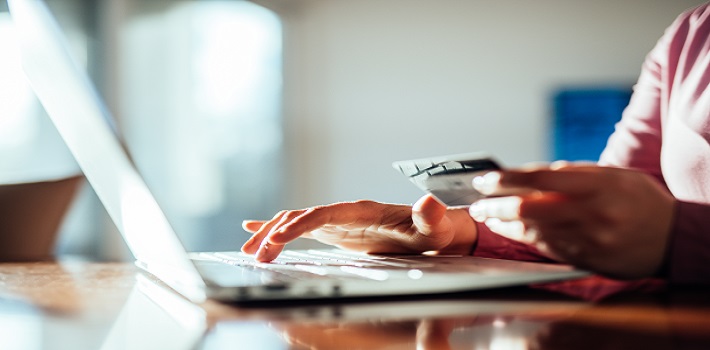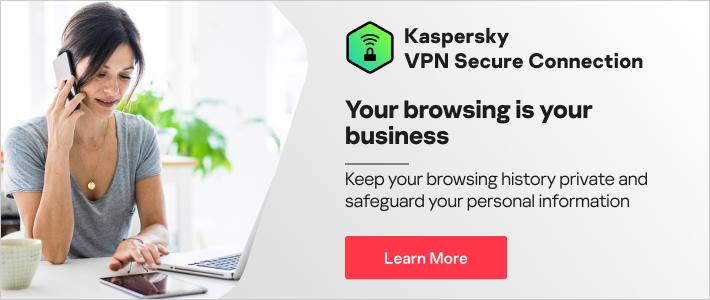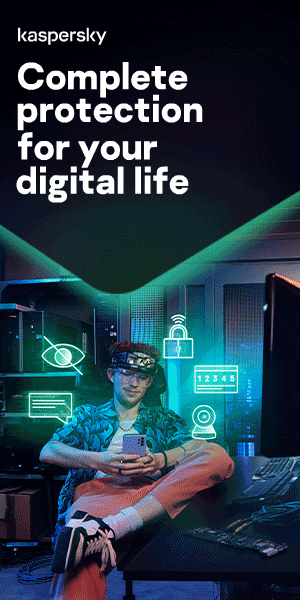How to hide your IP address

In an age where it's common to read headlines about hackers breaking into company and personal networks, internet sites tracking online consumer behavior, and other forms of digital spying and intrusion, it’s no wonder that so many are seeking ways to hide their IP address. But if you aren’t that internet savvy, all this talk of cybercriminals and hackers and tracking and IP addresses may have you worried every time you connect to the internet.
But don’t worry — there is a way to improve your security and hide your digital footprint from prying eyes, and it isn’t as difficult as you might think. You don’t need an advanced degree in computer coding; nor do you need to install expensive applications on all your devices. You simply need to know how to hide your IP address.
What is an IP address?
IP stands for Internet Protocol, which is essentially the system that enables data to move across the internet. An IP address refers to the address given to a specific device that is connected to the internet. Every single device that is connected to the internet, whether it’s a desktop computer, smartphone, laptop, or tablet, has a unique IP address.
When a device is connected to the internet, Internet Protocol utilizes the address of that device to know where to send and receive information from. And, yes, this activity is often tracked. That’s why after conducting a search about kitchen tables, for example, you’ll suddenly see ads for kitchen table retailers popping up on other sites you visit.
Getting personalized ads isn’t such a terrible thing, and it can even make your browsing experience more pleasant. But that really isn’t the main reason many people want to know how to hide their IP address.
Watch this video to learn what IP address is, why IP address is important and how to protect it from hackers:
Reasons you might want to know how to hide your IP address
It wasn’t too long ago that the main reason people wanted to hide an IP address was so that they could illegally download music and movies without being tracked by sites that monitor such activity. But over the years, many realized that there are many more important reasons to learn how to hide an IP address.
To keep your physical address private
A sophisticated hacker or cyber criminal may be able to discover your approximate location or even your actual physical address using your IP address. Typically, this information isn’t available to just anyone — in fact, you normally need a court order to receive it. But someone utilizing advanced IP lookup tools may be able to obtain a physical address illegally.
To avoid geographic restrictions
Many countries impose harsh censorship protocols on the internet, limiting what sites are available for browsing. China is one example of this. Other countries block copyrighted content that was produced elsewhere. For example, YouTube or Netflix videos that can be viewed in the United States may not be available for viewing in Germany or Ireland. When you hide your IP address, you can sometimes trick the servers into thinking that you are actually connecting to the internet from another country, bypassing the restrictions.
To stop companies from tracking your online activities
Understandably, privacy is a big concern of many. But almost everything you do online can be tracked, and it often is. Many companies track your online activity for consumer research purposes, enabling them to learn more about consumer browsing habits so they can develop better marketing plans. Other companies collect your data and sell it to large research firms that utilize the data for a variety of reasons.
If you don’t want your personal information studied or misused, you’ll definitely want to learn how to hide your IP address. This will stop companies from tracking your browsing habits, as well as prevent ad networks from discovering every product you are interested in. Websites you visit also have the legal right to collect data on your browsing activity pertaining to that site. Again, this is normally used for market research data, but if you want your digital footprint kept very private, you’ll want to hide your IP address.
To stop your ISP from tracking you
Unsurprisingly, your own internet service provider (ISP) also tracks your online activity. Like websites you visit, they have the legal right to do so. Unfortunately, it places your digital browsing data at a higher risk, since you normally don’t have many ISPs to choose from and not all of them are as secure as others.
Additionally, while your ISPs don’t normally sell your data, they could provide marketing research firms and advertising networks with your data if they chose to. When you hide your IP address, you not only prevent third-party companies from tracking your activity, but your ISP as well.
Keep your searches private
If you don’t want friends or other family members looking through your search history, chances are you don’t want complete strangers and unknown companies studying it either. Major search engines such as Google and Yahoo! automatically track every single search query you make, as well as what sites you visit, what links you click, how long you spend on a particular web page, etc.
When you learn how to hide your IP, you can stop the search engines from connecting any searches you make with your particular IP address. As an added measure, you can use the private browsing option that most browsers offer as a feature today.
Keeping your searches and online activity private is also important if you conduct a lot of private and sensitive research for a particular profession, such as law enforcement or investigative journalism.
How to hide your IP address
There are essentially two methods you can choose from to hide your IP address. One is using a proxy server, and the other is using a virtual private network (VPN). Either one will be sufficient, but there are a few cons associated with proxy servers that make VPNs a more optimal choice for many.
What is a proxy server?
Imagine internet traffic moving along major roads and highways. As an example, suppose you begin a search on Google. That is your starting destination. When you click the link on one of the search results, your data moves along a route until it reaches the next destination, the link you clicked on. This continues until your browsing activity is done for the session.
The data moving from one point to another is routed through different servers. Consider them something of an internet checkpoint. Each server logs your activity and your IP address. And so a complete route of your internet activity is recorded by various servers and websites and other companies.
When you use a proxy server, it is like driving those internet roads and highways in a secure, private limousine with darkly tinted windows. The limousine, which is the proxy server, has a different IP address than your current device that is connected to the internet. The servers, search engines, and other companies see only the IP address of the proxy server, and not your own.
Pros and cons of a proxy server
The main reason people use proxy servers is to hide an IP address. All your internet activity is routed through the proxy server, keeping your own IP address hidden from prying eyes. Using a proxy server also improves security since it adds an extra layer of protection against hackers. And, if you want to browse the internet anonymously, using a proxy server is one of the best ways to hide your identity.
One of the biggest drawbacks of using a proxy server is that even though you are able to visit websites anonymously, the proxy server can still cache sensitive information such as the usernames and passwords you use to access an online account. If you choose to use a proxy server, you’ll either want to avoid signing into private accounts or choose a proxy server with high levels of security.
Some inexpensive proxy might be incompatible with other server networks or your ISP. Or, you may be consistently annoyed by pop-up ads. It’s recommended you do your research before choosing a proxy server to ensure that you select one that offers a strong combination of reliability and security.
What is a VPN?
A virtual private network works in a somewhat similar fashion to a proxy server. When you connect your devices to a VPN before going online, your device will appear to be on the same network that the VPN is operating on. Your internet traffic data will be sent to the VPN via a secure connection and routed appropriately to the sites you intend to visit, effectively making your own IP address private and hidden.
These days, it is recommended that anyone wishing to improve the security of their devices and internet activity utilize a VPN. This is especially true if you often engage in internet activity while using public Wi-Fi. Accessing private accounts when using public Wi-Fi is a huge security risk, but when using a VPN, it offers much more protection from hackers. The VPN connection is encrypted and secure.
Pros and cons of a VPN
VPNs are great tools for securing your data, such as private messages, passwords and usernames, financial information, and anything else that is a normal part of your digital footprint. Using a VPN not only hides your IP address but also encrypts all the data related to your internet browsing sessions. Some premium VPNs use advanced encryption protocols that make you nearly invisible to anyone else on the internet.
Obviously, VPNs also keep your IP address secure from other entities that track the activity related to it, such as your ISP, search engines, social media platforms, or government agencies. Because your IP address is hidden and your data is encrypted, your online actions will pass undetected through servers.
If you enjoy visiting websites or watching online content that is normally unavailable to you because of geographic restrictions, a VPN can help with that too. A VPN allows you to change the country that your internet traffic appears to be coming from, enabling you to easily connect to data only available in certain countries.
Subsequently, a VPN is a great tool for accessing the internet if you are in a country where many internet actions and websites are prohibited. A VPN with very strong encryption will enable you to conduct normal online activity without fear of repercussions.
Not all VPNs are equal.
There are free VPNs available, but to ensure top levels of security and encryption, you’ll definitely want to use a higher-quality VPN. These typically charge a monthly fee. Take the time to research different VPN providers so that you can familiarize yourself with the different types of features they offer. For example, Kaspersky VPN Secure Connection offers IP address masking and zero activity logs for improved privacy and security from cyber criminals and hackers.
Depending on your needs, you may not feel that you need a premium VPN. But be wary of cheap or free VPNs, which usually don’t offer the same levels of security. Free VPNs can also be more congested or will bombard you with ads as you use it. Some VPNs may even collect your data, which is contrary to the whole point of using a VPN in the first place!
A reputable VPN, while still being able to see your online activity, will never retain or sell your data. Be sure to read the privacy and security details provided by each VPN you research to make sure that the VPN you choose goes through great efforts to protect your privacy.
Also, keep in mind that a VPN may cause your internet speed to be reduced. Routing your internet traffic through a VPN's remote servers can result in a slower connection. However, if you value your privacy online, a VPN is definitely worth it.
How do you install a VPN?
Installing and setting up a VPN is fairly simple, which is another reason they have become increasingly popular for people who want to hide an IP address. With most VPNs, all you need to do is install the software or download and install the app. You can do this for both computers and mobile devices, so that you can protect as many devices as possible.
Once the application is installed, you simply need to create an account and sign in. Then, when you are ready to use your VPN, you’ll start the VPN before going online. The VPN will connect to the closest server, but you can select servers in other areas or countries if that suits your purpose.
Choosing the right VPN
Different VPNs will offer different levels of security and encryption, but there are a few criteria that you’ll also want to consider before deciding on which one to use. For starters, you’ll want to choose a VPN that allows you to use several devices simultaneously. That way, if you have a household where everyone likes to be online at the same time for various things, you can all use the same VPN service.
As mentioned above, some VPNs may also affect your internet speeds. Look for VPNs that don’t slow down your online activity. Kaspersky VPN Secure Connection, for example, utilizes the fastest servers worldwide so that you don’t need to sacrifice speed for a secure way to enjoy the web.
Ultimately, it’s about choosing a VPN service you can trust. A VPN is a service meant to provide privacy and security. To begin with, when choosing a provider, it is better to consider those companies that have been on the market for a long time. This is an indicator of reliability: if the provider survived, then most likely it did not offend customers, did not steal data, and so on.
Recommended products
Kaspersky can protect you from all major threats, including malware, spyware, and trojans. The Total Security Suite also offers bank-grade protection for your online payments while keeping your data safe with a VPN. Discover the secure way to enjoy the web without compromising on speed.
Kaspersky VPN Secure Connection
Further reading
App Tracking Transparency on Apple devices
Several VPN apps leaked user data
How to tell if a website is taking your (browser) fingerprints
How to hide your IP address
Kaspersky
We use cookies to make your experience of our websites better. By using and further navigating this website you accept this. Detailed information about the use of cookies on this website is available by clicking on more information.






